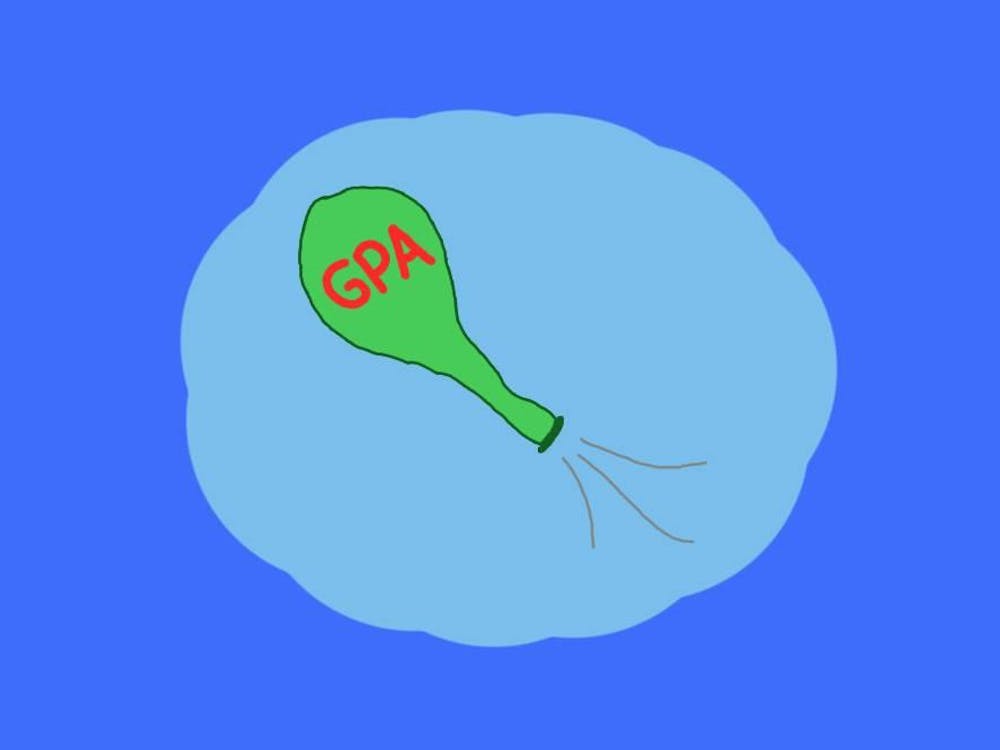MY HANDS and clothing have been stained often enough by the ink sliding off this cheap newsprint that I know that it doesn't wash off without some difficulty. But while the black smudges will wash out eventually, the impact of a good opinion column is indelible.
The sheer number of letters The Cavalier Daily receives in response to pieces on these pages is evidence that people care what these writers think. It is not necessarily true that our readers are concerned with the personal thoughts of a particular columnist. Rather, they care that those thoughts have been voiced. In being put down on paper and archived on the Internet, the point of view held by a writer has been legitimized.
In reality, the legitimacy is nothing more than an endorsement from the writer, from his editors and from the newspaper company. A column's appearance on a page carries with it an implicit seal of approval: This is a justified and viable point of view. Whether or not we agree with it, we recognize its existence. The value of the legitimacy is dependent upon the reader's opinion of the approvers. Though arguable, it nonetheless exists. And without it, no one would care about the musings of opinion columnists from a first-year viewpoint writer to George Will.
Given the legitimacy assigned to a column through its publication, a reader will only concern himself with the thoughts of a college journalist if those thoughts arouse his passions. Perhaps he finds himself nodding his head and smiling. Maybe he clips the column for his door or perhaps he dashes off a short note of agreement to the paper. If the column challenges his
beliefs, it may rile him. He may discuss the column with a friend or type out a longer, more fiery letter of objection. Either way, the column has made him think, and thus has served its purpose.
Opinion journalism is a vehicle for a writer to promote his own ideas while instigating discussion. Good columnists do not write for the sole purpose of inflaming readers, but they do not shy away from topics with the potential to anger people. High-quality columns take one side of a dual- or multi-faceted debate and make an argument for one of the sides. An exceptional opinion column undoubtedly will anger someone -- not because the column expresses an incorrect point of view, but because it makes a case for one side of a legitimate debate. A legitimate debate has two or more viable arguments and thus two or more camps of debaters.
If a reader considers the issue important, he should have an opinion on the matter. If his opinion differs from that of the columnist, he may feel the urge to write in and express his viewpoint. If he does so, the column will have been particularly successful.
Sometimes, however, a column offends someone. He may call it offensive for one of several reasons. Perhaps the most common reason is that he considers the espoused viewpoint to be not viable. It is an illegitimate belief, he says to himself. How could anyone give it credence by publishing it? It is far easier for this reader to discredit a column by claiming that the writer is a radical, a lunatic or a conspiracy theorist, than for him to concede that the point of view is valid and worth arguing.
And despite the reader's heated diatribes -- oral, written or both -- chances are that he is wrong. Few arguments are invalid. I lay out the purpose and the results of opinion journalism with the intent of motivating writers of these pages, and those aspiring to become writers of this page, to arise to their calling. Don't be afraid to say what you mean. Always think long and hard about what you say before you say it, while you say it, and even after you have said it. Even a legitimate opinion recorded for posterity can be subject to change.
Journalism would be pointless without readers, and similarly, opinion journalism would have trouble without skeptics. Without editorial responses, guest columns and letters to the editor, the opinion page would not be an interactive University forum, and its effects would not be as powerful. Use your opinion, and the forum that these pages offer you, wisely. Use them often. Use them to educate yourself and other people. Keep reading, and keep writing.
It took me four years to learn all of the above. Four years of angry letters and occasional phone calls at home. Four years of trial and error. I still have a lot left to learn. But with these words, I leave the ranks of opinion writers to enter the world of hard news, trading one journey for another. Perhaps I'll be back in a few decades. Until then.
(Masha Herbst was a The Cavalier Daily Opinion columnist, Associate Editor, Opinion editor, and Executive Editor.)




